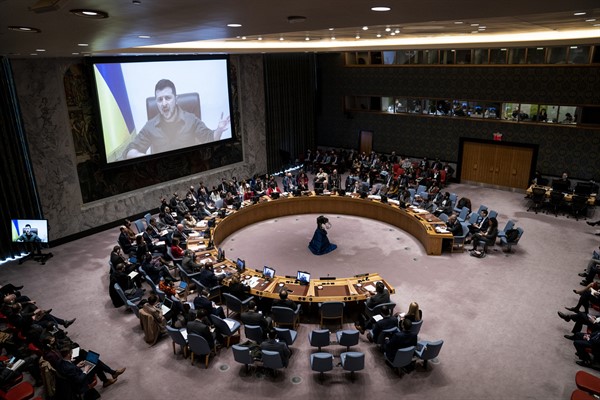Last week, Ukrainian President Volodymyr Zelenskyy delivered an impassioned rebuke to the United Nations Security Council for its failure to prevent Russia’s invasion of his country.
“Where is the security that the Security Council needs to guarantee?” he demanded. “It’s not there.” Rather than taking forceful action to arrest or even condemn Russia’s behavior, he said, the body had devolved into a venue for “conversation.” It was obvious to all that “the goals set in San Francisco in 1945 for the creation of a global security organization have not been achieved,” Zelenskyy concluded.
Zelenskyy’s indictment, which cited evidence of horrific atrocities committed by Russian forces, rattled U.N. ambassadors, as well it should have. Ukraine presents a potentially existential crisis for the U.N., given that it was created 77 years ago with the express intent of “sav[ing] succeeding generations from the scourge of war.” With the Security Council paralyzed by the Russian veto, the question lingering in the air is whether the U.N. will repeat the history of its ill-fated predecessor, the League of Nations, which abjectly failed to stop fascist aggression during the 1930s. That sad tale is worth remembering now, as we assess whether the U.N., too, is destined for history’s trash bin.

